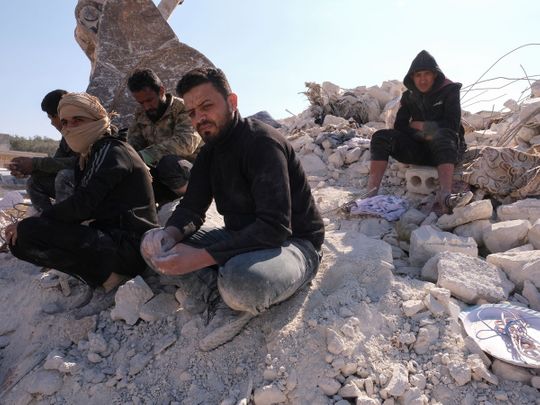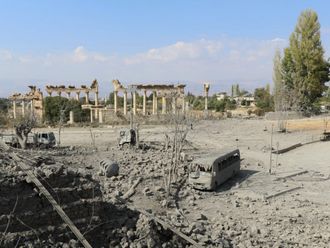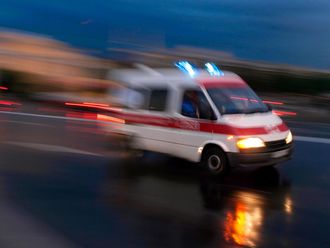
Nine survivors were rescued from the rubble in Turkey on Tuesday, more than a week after a massive earthquake struck, as the focus of the aid effort shifted to helping people now struggling without shelter or enough food in the bitter cold, Reuters reported.
Overnight, a 77-year-old woman named Fatma Gungor was pulled alive from the rubble of a seven-storey apartment block in the city of Adiyaman, some 212 hours after the first earthquake, media reports said.
Wearing an oxygen mask, covered in a gold foil blanket and strapped onto a stretcher, Gungor was carried by rescue workers down from the ruins of the building to a waiting ambulance, footage from state broadcaster TRT showed. Afterwards, Gungor's relatives hugged the rescue team, made up of military personnel and members of the disaster management authority AFAD.
Also read
- Devastating quake in Turkey, Syria shows power of Nature’s fury
- Turkey: Woman rescued from rubble after 203 hours, 3 others after 198 hours after quake
- World Government Summit 2023: UAE’s support vital in Turkey-Syria earthquake relief, says WHO chief
- Turkey-Syria earthquake: Emirati rescue team saves two young men trapped in rubble for nine days
Nine other survivors were rescued in Turkey on Tuesday as the focus of the aid effort shifted to helping people now struggling without shelter or enough food in the cold. The combined death toll in Turkey and Syria has climbed over 41,000, and many survivors are enduring near-freezing winter temperatures, having been left homeless by the devastation in cities in both countries.
Those rescued on Tuesday included two brothers, aged 17 and 21, pulled from an apartment block in Kahramanmaras province, and a Syrian man and young woman in Antakya rescued after over 200 hours in the rubble. There could be further people alive still to find, said one rescuer.
But, hope is dwindling.
Rebuilding the country
Turkish President Tayyip Erdogan vowed to press on with rescue and recovery efforts more than a week after a powerful quake ripped through his country and neighbouring Syria, with an elderly woman the latest to be pulled from the rubble.
"We will continue our work until we remove the last citizen left under the collapsed buildings," Erdogan said late on Tuesday after a cabinet meeting held at the headquarters of the Disaster and Emergency Management Authority (AFAD).
Damage assessment of buildings, of which tens of thousands were destroyed, will be completed in a week and reconstruction will begin within months, he said.
"We will rebuild all the houses and workplaces, destroyed or made uninhabitable by the earthquake, and hand them over to the rightful owners," he added. More than 105,000 people were injured in the quake, he said, with more than 13,000 still being treated in hospital.
Children worst affected
In the days after the earthquakes, it was hard to tell which of the children here still had parents. As local officials tried to match survivors with their mothers and fathers, they found they had never known some of the families at all.
After 12 years of civil war, this pocket of northwest Syria is home to millions of people from across the country, their names and histories often obscured by displacement and isolation. As aid workers scoured hospitals for the missing, families hoped and prayed.
"We couldn't check on databases, we couldn't check on lists," said Nour Agha, a relief worker in the shattered town of Jinderis. "Some of the children couldn't even tell us their names, they were so shocked."
Extended families and authorities on both sides of the Turkey-Syria border are still trying to figure out how many children have been orphaned, and how to care for them. They are spread across tents and hospital wards, sleeping in cars or in the apartments of the closest relatives they have left.










